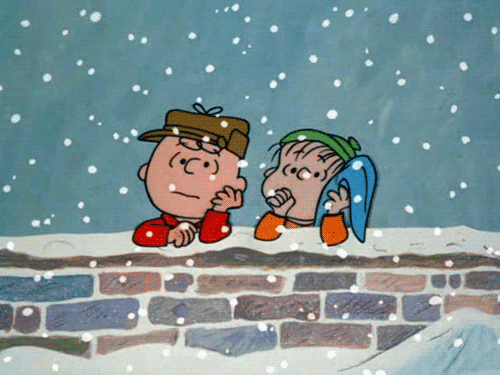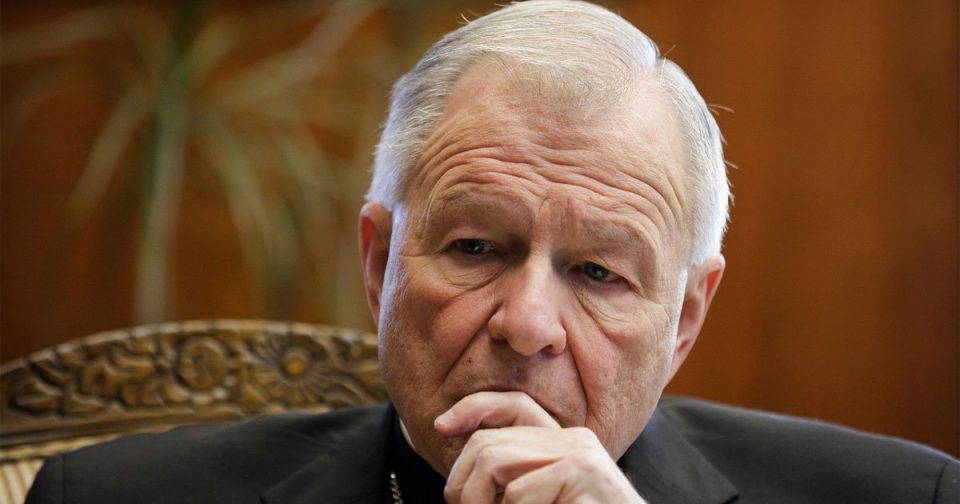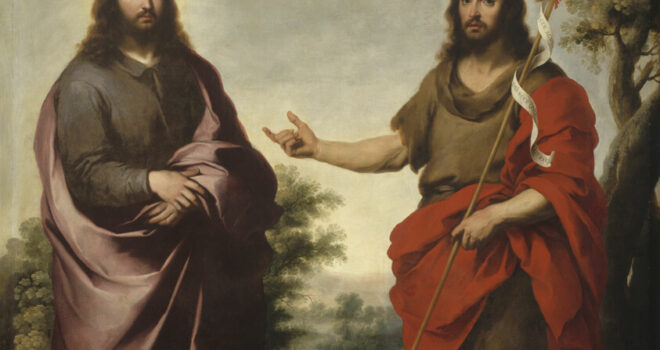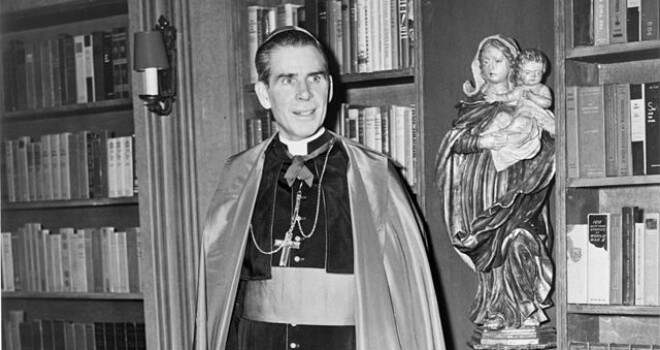Rev. James V. Schall, S.J.: The Reason for the Season

Fr. Mike Schmitz: Sermon Spotlight: ‘Every Act of Work Has Dignity’
December 18, 2017
Austerity for Christmas
December 19, 2017
Taking Christ out of Christmas makes the holiday literally meaningless.
Rev. James V. Schall, S.J., The Stream, Dec. 2017
 A friend sent me a copy of a very short Peanuts booklet entitled Christmas Stocking. It purported to contain “two never-before-reprinted Peanuts Holiday Classics.” I am never able to pass by a new or old Peanuts and leave it unread.
A friend sent me a copy of a very short Peanuts booklet entitled Christmas Stocking. It purported to contain “two never-before-reprinted Peanuts Holiday Classics.” I am never able to pass by a new or old Peanuts and leave it unread.
The very first scene shows a winter-wrapped Linus talking to a befuddled Charlie Brown. With great earnestness, Linus tells Charlie: “I am not going to hang up a Christmas stocking this year. I’ve decided it’s not scriptural.”
But lots of things about the way we celebrate Christmas are not in the Bible. Christmas in the upper latitudes of the Northern Hemisphere is usually pictured against a wintery background, something not quite so easily associated with Christmas in the Southern Hemisphere.
Christmas is Christmas
Theologically, though, Christmas is Christmas in both hemispheres. Christmas overshadows and transforms everything it touches. Those who currently oppose it work hard to remove it from music, shop-windows, greetings, gifts, and even an intelligible statement of what it means.
Christmas is about an historical event that took place in the Roman province of Judaea during the time of Caesar Augustus. He wanted a census to be taken. In Palestine, this counting meant that the head of a family had to register in the place of his birth and tribal association — Bethlehem, in Joseph’s case..
Christmas has to do with the birth of a Child, a Son, to a woman named Mary, whose husband, Joseph, took them to Bethlehem because of this census. He was of the House of David. Later he took Mary and the Child to Egypt to escape the local ruler Herod, who had threatened the Child because of what he heard about Him, that He was a king or some such thing.
We know something of the events leading up to this journey to Bethlehem. Mary and Joseph lived in an out-of-the-way place called Nazareth. Mary was told that the Child that was to be born to her was to be named Emmanuel, or “God with us.” He was, in fact, not Joseph’s son but the Son of God. So while the Christmas stocking may not be scriptural, the name and nature of who was born comes to us from the Gospels and Paul, with reminiscences from the Old Testament.
Many skeptical scholars and politicians in different times and places have sought to cast doubt on the truth of this narrative. Especially today, in many, including democratic, places, one is not free to affirm this event in public. People, we are told, have a “right” not to hear it. It is not “scientific.”
More Than Just Sentiment
Later in the booklet, Lucy, with Snoopy, is seen mailing a letter. “You know what I just did?” she asks the clueless Beagle. “I just mailed a letter to Santa Claus.” Walking away from the mail box, with Snoopy following, she continues: “Being a stupid Beagle, of course, you wouldn’t understand about that.”
Once inside sitting on the couch, Lucy explains to Snoopy, as he lounges beside her, what Christmas is all about. “Each year little kids all over the world write to this fat guy up in the North Pole. They tell him what they want for Christmas.”
Snoopy listens carefully as Lucy informs him what happens next. “Then on Christmas Eve he flies through the air in a sleigh with a bunch of reindeer, and brings all these kids the things they ask for…Why? I don’t know.” Lucy shows uncharacteristic ignorance here.
The next scene has no words. Snoopy is shown sitting under a barren tree gazing out on the world with some perplexity. In the final scene, the Beagle is shown reclining on his back on top of his dog house. A decorated Christmas tree is seen to its side. He simply says to himself: “I’m going to have to be careful … All this theology could ruin my Christmas.”
So hanging stockings is not scriptural and too much theology could ruin Christmas. But Christmas cannot exist without a proper theological explanation. Essential to a “Merry Christmas” is the accurate knowledge of what Christmas means, be it in the Southern or the Northern Hemisphere. Christmas, though it does not disdain them, is not just stockings, mistletoe, lighted trees, reindeer, and gifts.
The Essence of Christmas
The essence of Christmas is this: The Word was made flesh and dwelt amongst us. The Word is the Second Person in the Trinity. He is True God who, while remaining God, became true man. Thus, He was born of woman, in a specific time and in a designated place. Once this birth took place, the world simply was not and could not be the same. The Word is not only the Word made flesh, but the Word through whom all things that exist are made and come forth into their own existence.
Christ comes into the world for a purpose. Basically, this purpose is to remind every human person why he exists. He exists in this world, but not for it. It is not his final home. In The Four Men, Belloc wrote:
Whatever you read in all the writings of men, and whatever you hear in all the speech of men, and whatever you notice in the eyes of men, of expression or reminiscence or desire, you will see nothing in any man’s speech or writing or expression to match that which marks his hunger for home.




